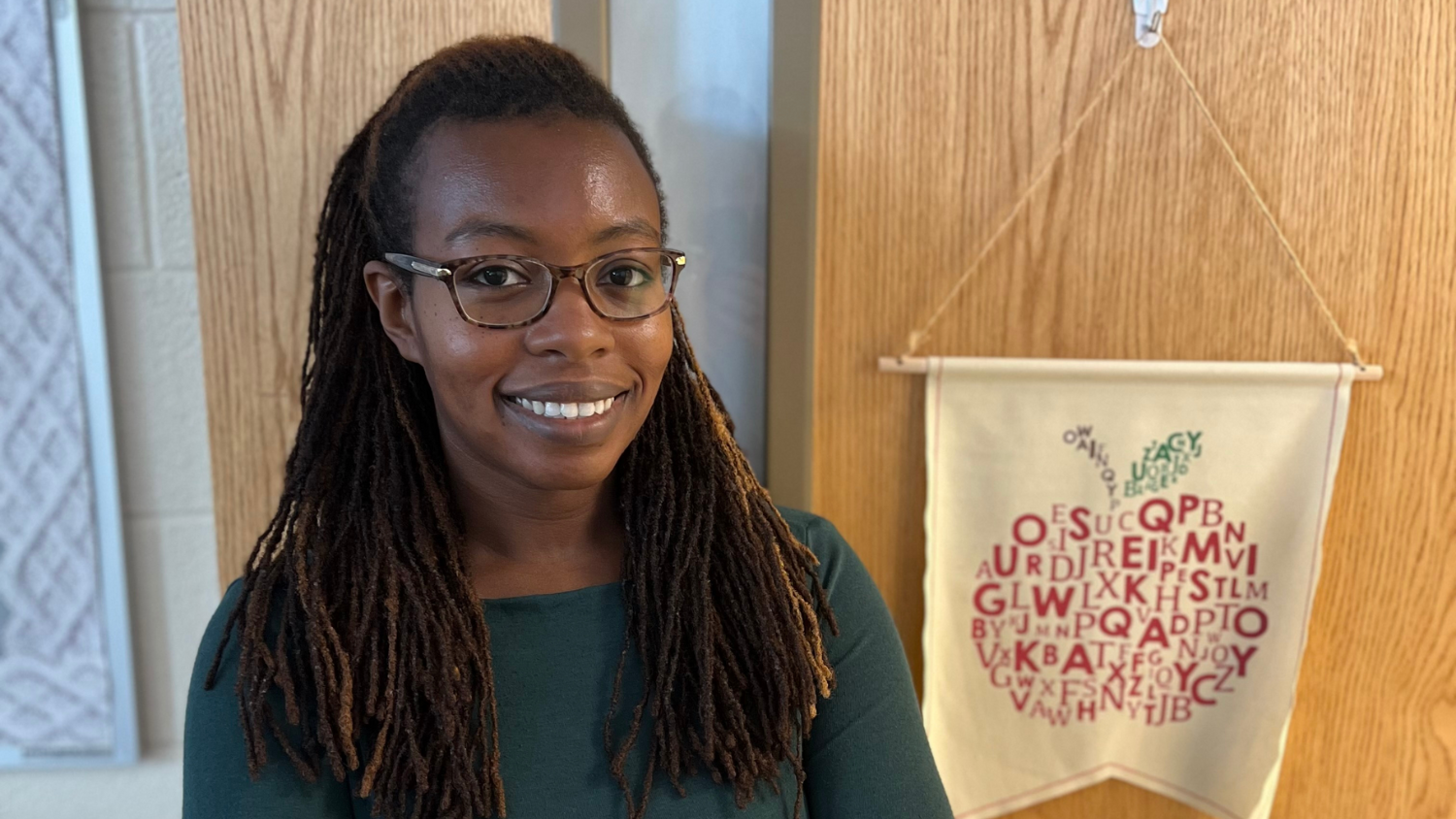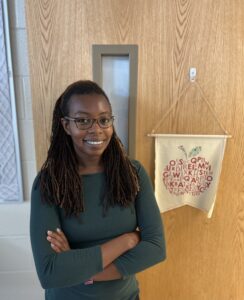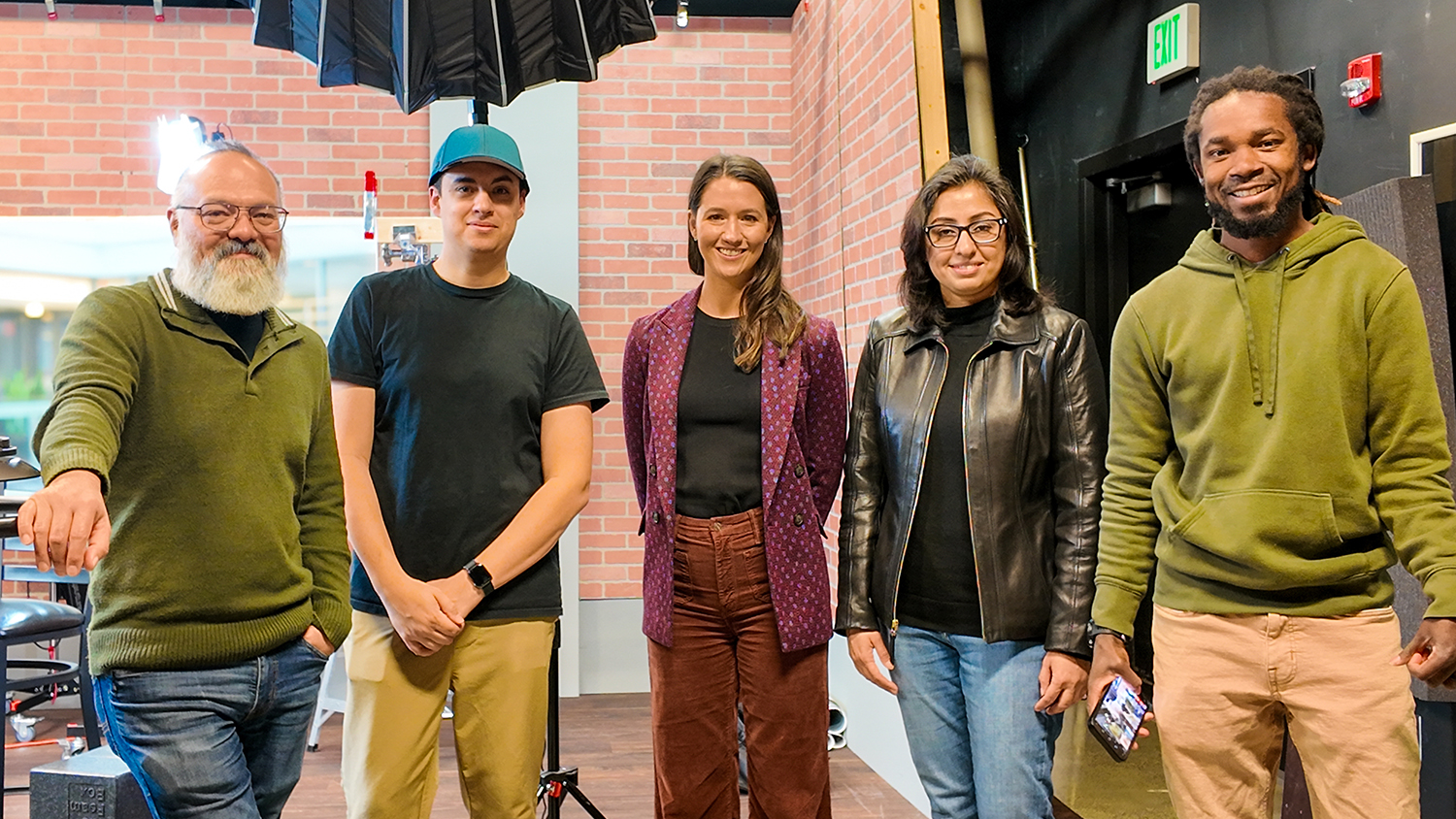Language Arts Teacher Pursues ESL Add-On to Shake Things Up

Alana McKinnon is a seventh and eighth grade language arts teacher at Northern Guilford Middle School in Greensboro, North Carolina. Last semester, McKinnon decided to pursue her ESL (English as a Second Language) Add-On licensure online through NC State. McKinnon had been looking for a way to shake up her career, and this license could do that.
“I’ve been teaching language arts for six years now,” McKinnon said. “Lately, for the past couple of years, I felt like I wanted to do something different or new. I just knew that I did not want to do language arts forever. I had been thinking a lot about what I might do, and so finally, I said, ‘You know what, I want to do ESL.’”
McKinnon is pursuing the licensure not for a change in career, but for a change in impact. After completing the licensure, she would like to teach ESL to adults and refugee populations.

While studying at UNC-Greensboro, McKinnon was studying both language arts and ESL and was interested in both, but ultimately chose language arts to focus on through student teaching. Part of McKinnon’s decision to pursue the ESL Add-On licensure was that it wasn’t a huge risk because she could still keep her job while pursuing additional education.
“And so I did a Google search,” McKinnon said. “NC State was the first one that came up. I have friends who went to NC State and who are teachers, and they’re great teachers. So, I know they have an amazing education program. ESL Add-On also has open enrollment, which was really convenient for me.”
Since McKinnon is also a full-time teacher, she is working at her own pace, a plus of an online program. McKinnon has completed one class so far, FL/ECI 436/536: Perspectives on English as a New Language.
“It’s the class where you kind of learn about English Language Learners (ELLs), the history of ELLs and how ESL started,” McKinnon said. “My experience was great. I liked it a lot because I was learning even though I wasn’t sitting in a classroom.”
Being located in Greensboro rather than Raleigh was never a setback in this class for McKinnon.
“I never felt like I was missing anything,” McKinnon said. “I always felt connected. I really liked how there was a requirement to talk to other students. We had to have zoom calls and we would discuss readings and things.”
McKinnon also noted her place as a “non-traditional student,” usually referring to adult students in a classroom, and how she never felt different or ostracized as one, but it was a new experience for her.
Although McKinnon did not have any ESL students in her language arts classroom this last semester, she was able to learn more about her students in general and the strengths they bring to the classroom from their cultural backgrounds, a concept called community cultural wealth.
“It’s strengths that you get from life, like strengths that you get from things that you learn as you are growing up, and especially for people of color,” McKinnon said. “Learning about that made me see my students in different ways. So even though I didn’t teach any ESL students this year, I did teach a lot of students who were from different countries or knew other languages. It gave me a different way of looking at my students.”
McKinnon’s new perspective helped her see how students use their culture, like another language, to inform their learning in ways other students could not.
Although she has just started, McKinnon already highly recommends pursuing additional online education, even if it requires extra effort and leaning on a support system.
“For me personally, I not only have another job, but I also have a two year old, and it can be a lot to balance. You know, school, work and family,” McKinnon said. “But one thing I would recommend to people is to figure out who can help you; not only did my husband help me sometimes, but my mother sometimes helped me.”
McKinnon also recommends honesty with professors in hard times.
“I was very honest with Dr. Turner, and I would let her know, ‘hey, this has happened.’ While I was taking the class, I was going through a lot in my personal life. I wasn’t super open, but I definitely let her know.”
Finally, McKinnon discussed how important it is to take your time in an online program, waiting a second before taking the plunge.
“I didn’t jump right in, taking three classes,” McKinnon said. “I started with one class just so I can get my feet wet, figure out how to balance my time and manage my time. Definitely start slow. If you have to, ask for help. Talk to your professors, communicate very well.”
- Categories:


